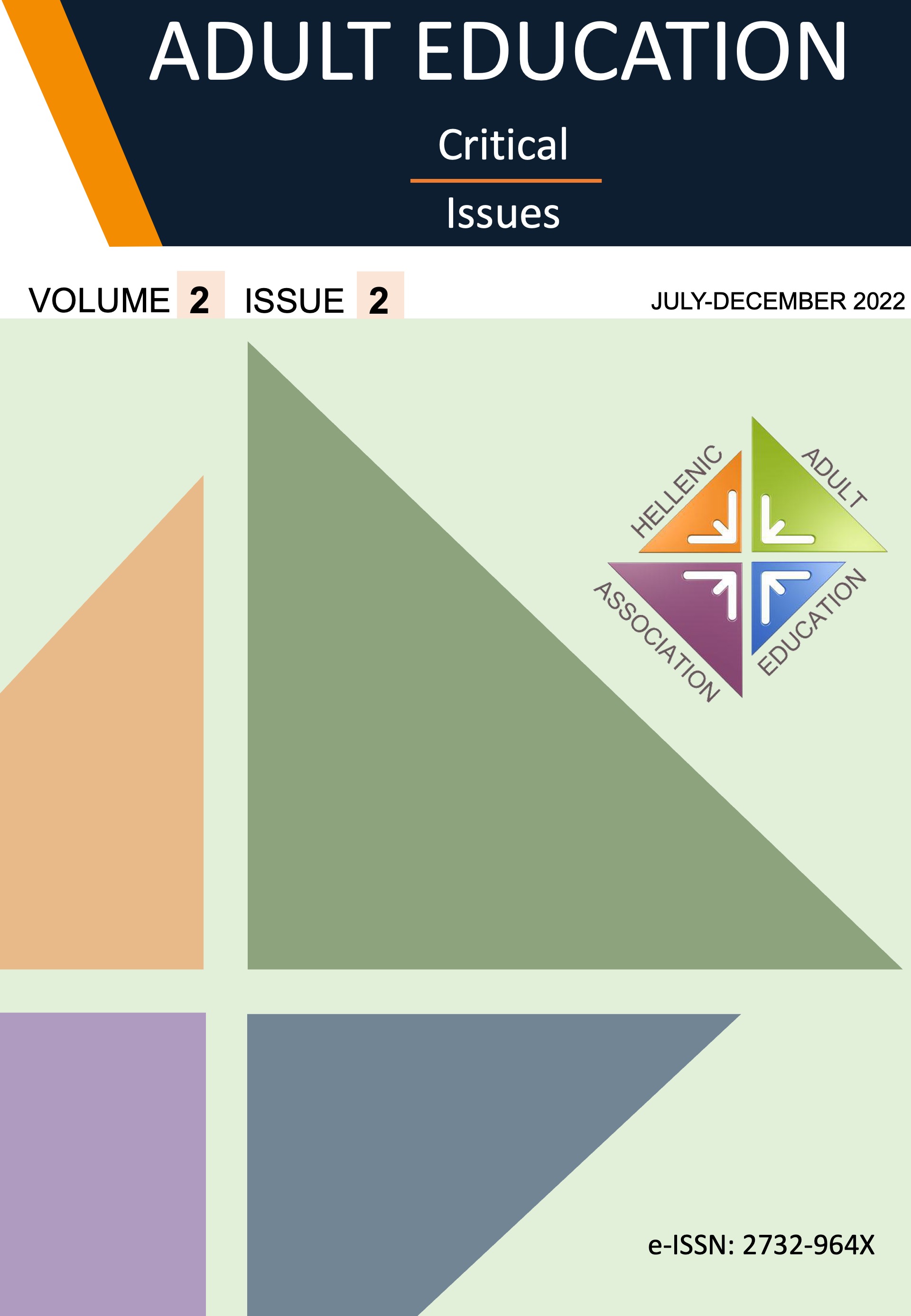The use of reflection team from Systemic Family Therapy field in Adult Education: mental health specialists – adult educators’ views

Abstract
The goal of the present paper is the pursuit of connecting Psychology and Adult Education, through the insight of the views expressed by mental health experts - adult educators on the use of the reflective team of the Systemic Family Therapy in Adult Education as a mean for promoting transformative learning. The questions focus on examining the capability of the reflective team to work in a transformative way, in the conditions required for the critical reflection to be developed using reflective team in, as well as towards the obstacles that can emerge during this process. For this purpose, qualitative methodology was used, and specifically, semi – structured interviews were conducted in nine mental health experts that were trained also in the Adult Education field and the outcome was processed with the use of thematic analysis. The most essential findings were related to the parameters of the reflective team that can enhance its transformative function, such as polyphony, distance, and the atmosphere of the team. Moreover, the necessity of educating the targeted population and the use of reflective teams in issues relevant to humanitarian sciences or to self-development were also derived. Some possible impediments that the participants referred that might arise, were the difficulty of the inevitable exposure that is required during the participation of people in the reflective teams, the defense mechanisms of the participants and the unwillingness of an organization. Finally, the importance of the role of the educator for the use of the reflective team in Adult Education was highlighted by the majority of the participants.
Article Details
- How to Cite
-
Dedousi, N. (2022). The use of reflection team from Systemic Family Therapy field in Adult Education: mental health specialists – adult educators’ views. Adult Education Critical Issues, 2(2), 47–65. https://doi.org/10.12681/haea.30602
- Section
- Articles

This work is licensed under a Creative Commons Attribution 4.0 International License.
Authors who publish with this journal agree to the following terms:
- Authors retain copyright and grant the journal right of first publication with the work simultaneously licensed under a Creative Commons Attribution License that allows others to share the work with an acknowledgement of the work's authorship and initial publication in this journal.
- Authors are able to enter into separate, additional contractual arrangements for the non-exclusive distribution of the journal's published version of the work (e.g., post it to an institutional repository or publish it in a book), with an acknowledgement of its initial publication in this journal.
- Authors are permitted and encouraged to post their work online (e.g., in institutional repositories or on their website) prior to and during the submission process, as it can lead to productive exchanges, as well as earlier and greater citation of published work (See The Effect of Open Access).


